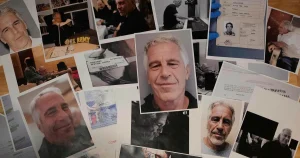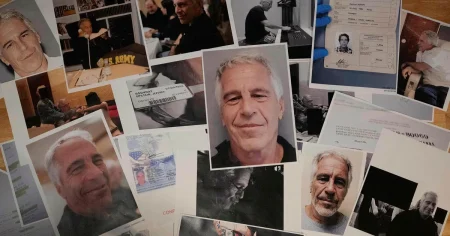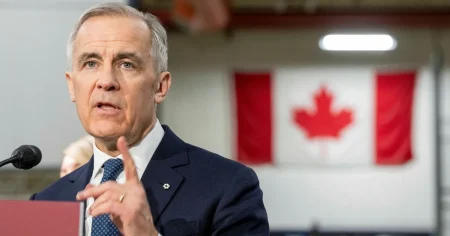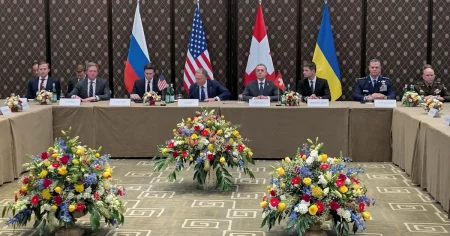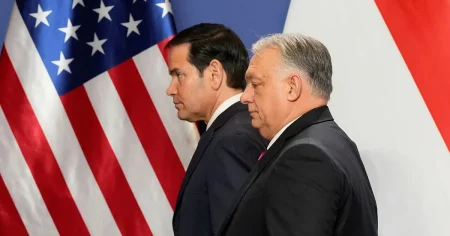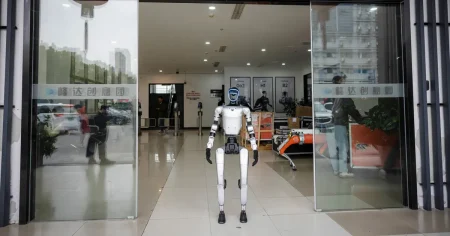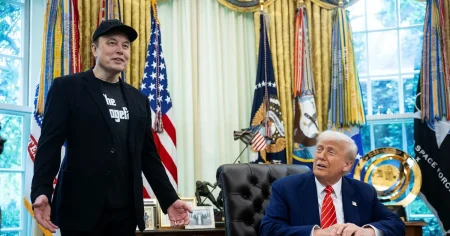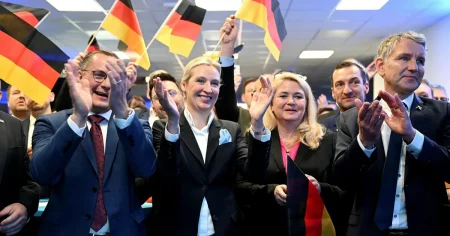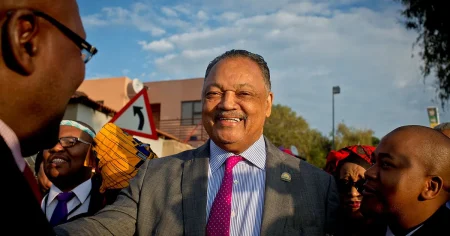The streets of Tbilisi, Georgia, have been filled with the echoes of dissent as thousands of citizens protest against what they perceive as a government turning its back on the European Union and inching closer to Russia’s sphere of influence. This public outcry was sparked by Prime Minister Irakli Kobachidze’s announcement to postpone Georgia’s EU membership application until 2028, a decision seen by many as a betrayal of the nation’s pro-Western aspirations and a concession to the influence of Bidzina Ivanisjvili, the billionaire oligarch believed to wield significant power behind the scenes. Protesters like Nana Rapava, draped in the Georgian flag, express their fear of returning to a Russian-dominated past, drawing parallels to the fall of the Syrian dictator Bashar Al-Assad and urging Ivanisjvili to follow suit by seeking refuge in Moscow. This sentiment resonates deeply with many Georgians who view Ivanisjvili’s amassed fortune in Russia with suspicion and see his influence as detrimental to the country’s future.
The protests, reminiscent of the 2013 Euromaidan demonstrations in Kyiv, were initially triggered by allegations of widespread electoral fraud following the October elections, which saw the ruling Georgian Dream party retain power. However, the Prime Minister’s subsequent declaration regarding the EU membership, coupled with accusatory rhetoric towards the EU, ignited a wave of public anger. The decision to delay the application is particularly sensitive as approximately 80% of Georgians support EU membership, a goal even enshrined in the country’s constitution. The perceived alignment with Russia, and by extension President Vladimir Putin, is a source of deep anxiety for many, stirring fears of a return to an era of Russian dominance.
While the protests in Tbilisi have been largely peaceful, marred by instances of police brutality against demonstrators, including the use of water cannons, tear gas, and arbitrary arrests. Tamar Oniani, a lawyer with the Young Lawyers’ Association, reported over 500 detentions, with a majority of those arrested suffering physical abuse, sometimes amounting to torture. This heavy-handed response by authorities further fuels public discontent and reinforces the protesters’ claims of governmental oppression. The targeting of journalists, like Guram Rogava of Formula TV, who was severely assaulted during a live broadcast, underscores the government’s attempts to suppress dissent and control the narrative.
One of the striking aspects of the Tbilisi protests is the lack of a centralized leadership. Unlike the Euromaidan protests, which had prominent figures guiding the movement, the Georgian demonstrations are characterized by a spontaneous, grassroots nature. While this decentralized structure reflects a deep distrust of the fragmented political opposition, it also raises concerns about the movement’s long-term sustainability and effectiveness. The lack of a unified voice and clear direction could potentially lead to a dissipation of energy and momentum, as some protesters fear. This concern is heightened by the impending end of President Salome Zurabisjvili’s term, a figure who has publicly supported the protests but whose influence is now waning.
The comparison between the Tbilisi protests and the events in Kyiv in 2013 is inevitable, but there are also significant differences. While both were sparked by a rejection of closer ties with the EU under pressure from Russia, the atmosphere in Tbilisi lacks the same sense of urgency and determination that characterized the Maidan. The absence of barricades, long-term encampments, and a constant stream of speakers suggests a less entrenched and perhaps more vulnerable movement. Some protesters, like Data Charaisjvili, who suffered a brutal beating at the hands of the police, express pessimism, drawing parallels to the suppressed protests in Belarus in 2020.
The looming appointment of former footballer Micheil Kavelasjvili as the new President, a figure seen as loyal to the ruling party, could potentially reignite the protests. However, the recent decline in the intensity of demonstrations, marked by a decrease in confrontations with police, raises concerns about the movement’s ability to sustain its momentum. The absence of a clear leadership, combined with the government’s crackdown on dissent and the general public’s weariness, creates an uncertain future for the pro-European aspirations of Georgia. The question remains whether the embers of resistance will be rekindled or whether the Georgian Dream party will successfully consolidate its power, effectively steering the country towards a closer relationship with Russia.




